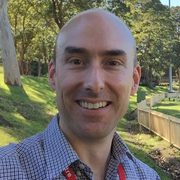Dr
Mark Larance
Challenges and questions in proteomics technologies and research
Mass spectrometry when coupled with high resolution liquid chromatography is a key technology for protein analysis. We have established several workflows for the sensitive analysis of protein-protein interactions in mammalian tissues such as liver and protein abundance analysis in human blood plasma. These methods allow us to monitor the effects of various clinical interventions such as intermittent fasting to determine their mechanism of action. In this talk I will cover these methods and the integration of the datasets to derive new biological knowledge.

Dr Mark Larance
CINSW Future Research Leader Fellow
Charles Perkins Centre, School of Life and Environmental Sciences, The University of Sydney
Mark Larance received his undergraduate degree in biochemistry from UNSW in Sydney, Australia. He was awarded a PhD in biochemistry in 2007 from UNSW, based on a collaborative project between the Garvan Institute (Prof David James) and UNSW (Prof Michael Guilhaus). During his PhD, he developed methods for the study of insulin signalling and vesicle trafficking using mass spectrometry-based proteomics.
In 2009, he moved to the University of Dundee in Scotland to take up a post-doctoral position in the laboratory of Prof. Angus Lamond. He was awarded a Royal Society of Edinburgh Personal Research Fellowship, which allowed him to become an independent investigator at the University of Dundee. During this period, he expanded his interest in starvation responses in model animals.
In 2016, he was awarded a Cancer Institute NSW Future Research Leader fellowship, which allowed him to return to Australia from Scotland to investigate how programs of intermittent fasting can assist with the prevention and treatment of cancer. He is currently a senior lecturer in the School of Life and Environmental Sciences and is in the Charles Perkins Centre (CPC), which is a multidisciplinary institute devoted to easing the global burden of obesity, diabetes, cardiovascular disease and related conditions.
